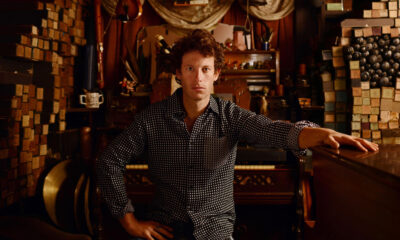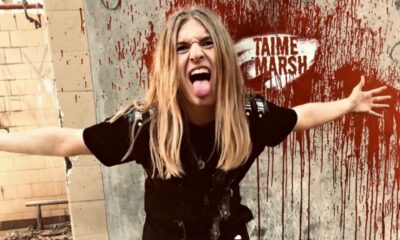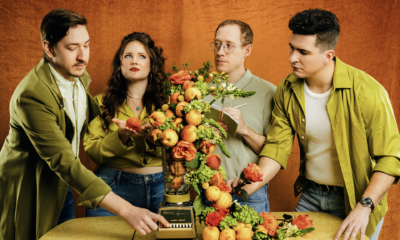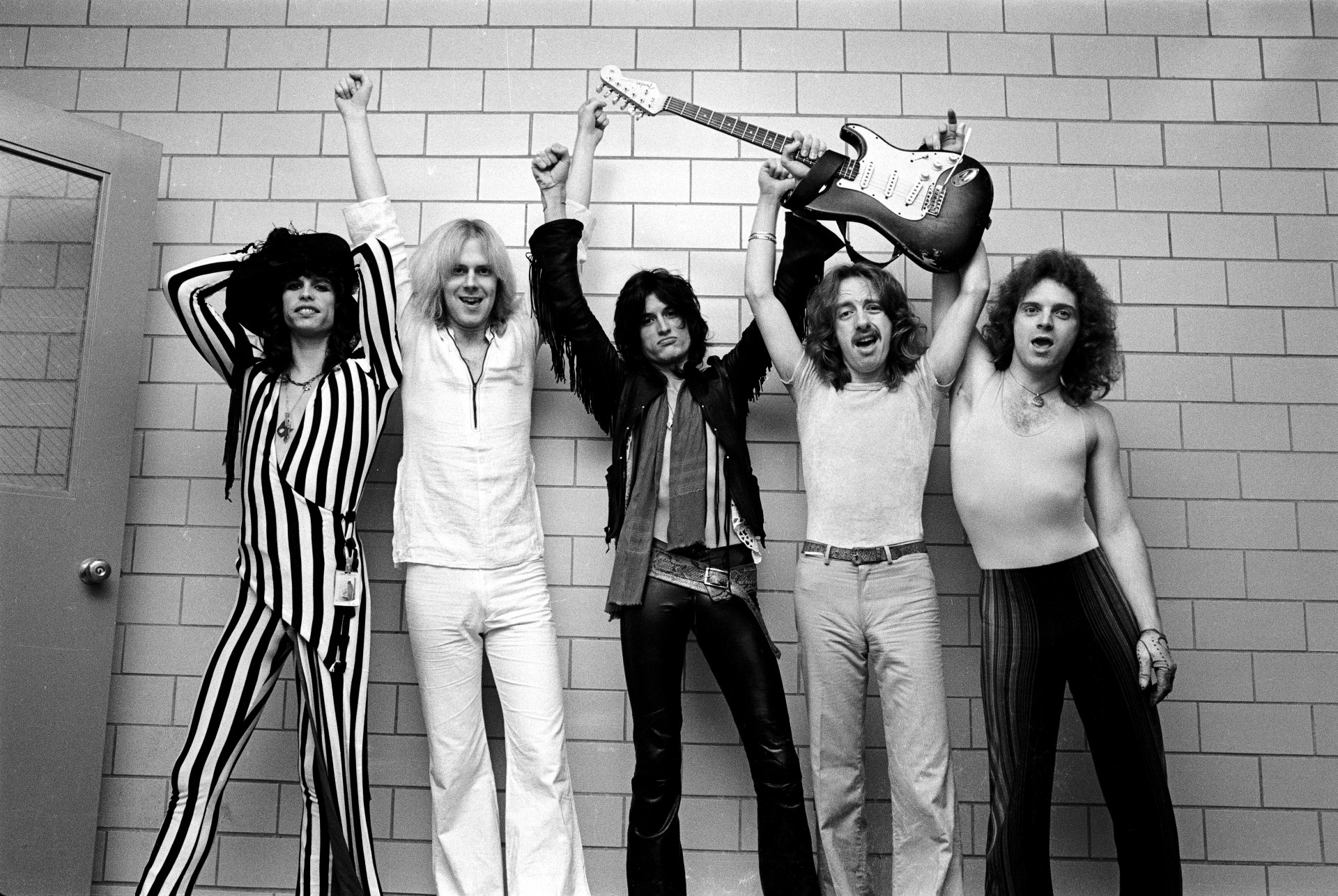Interviews
Skillet Interview; John Cooper on Rock On The Range, Quality Demos, and Their Inclusion in the Motion Picture ‘The Shack’
With ROTR and a summer run of dates supporting Korn, fans will get plenty of chances to see the Skillet live. John Cooper was most affable for this interview and seems genuinely eager to perform at ROTR!

This interview stemmed out of a request for some preamble around Rock On The Range, the long sold-out three-day rock festival in Columbus Ohio that has shaped up to be the go-to rock festival of 2017. Boasting headlining sets from Metallica, Soundgarden, and Korn, along with a veritable who’s who in heavy rock throughout each day, Rock On The Range is going to set the bar for the rest of the calendar year as the festival line-up to beat.
Last year Skillet released their 10th studio effort Unleashed. The album is a hard-hitting collection of some of the band’s best anthems to date. With ROTR and a summer run of dates supporting Korn, fans will get plenty of chances to see the band live. Cooper was most affable for this interview and seems genuinely eager to perform at Rock On The Range in a few months’ time.
Where are you at the moment, John? You are touring right now, correct?
Cooper: We’re in Spokane, Washington. It’s freezing here. The tour has been great. It’s just been cold everywhere. Which is fine. But I’ll be pretty glad to get into some nicer weather, man.
To me, the sure sign of a dedicated band comes from looking at their release schedule. Skillet has maintained a new release almost every two years. That’s top marks for a band.
Cooper: Thank you. That’s actually not quite the case. I wish it were. We were three years between this last one.
Right. But Invincible (2000), Ardent Worship (2000) and Alien Youth (2001) smooth that out a bit.
Cooper: (laughs) I just don’t want to give myself too much credit. But I really try to put records out sooner than later. To tell you the truth, it’s always a constant struggle between me and my label. Because these days there is so much pressure on records. Everybody gets involved. And if you haven’t re-written “Thunderstruck” or something, they (labels) usually say they don’t know if they have any radio songs in what they are hearing. We do this dance every single time. I get it. You’ve got to sell records, and you’ve got to have radio songs. But I’m a believer in giving your fans something to feed on, you know?
If you are not going to produce albums then you are not going to produce new fans. It’s impossible. I’m a huge believer in putting music out as quickly as early as possible, touring hard and then working on putting the next one out. I don’t need to break. I just need to put a record out. (laughs)

How would you describe your sound – in the sense of it sounding the same over the years, or is there an evolution you feel has happened over the past nine studio albums? If so, how have your fans reacted to that change?
Cooper: Sure. I think Skillet is probably one of the more evolving bands out there. People tend to say that every record is like a new sound. And I don’t know if I’d say that we have a new sound, but there are definitely eras of Skillet, without question. We are on our 21st year now. Unless you are lucky enough to be Metallica or AC/DC or Iron Maiden and you don’t have to change your sound. Most of us mere mortals have never created something out of thin air like Metallica did. We try and change with the times, and try and do things differently. But to be 100% honest, I’ve kind of enjoyed that. I just like so many different kinds of music that I like experimenting. I don’t want to keep making the same record over and over and over. I’m an ‘evolve or die’ kind of a musician. I think it’s cool to try new things.
We’ve been lucky enough to have that underground fan base that sticks with you until the end. It keeps you in business for all of these years. And I think they are always interested to hear what Skillet is going to do next. So as long as we give them what we think they want and try some new things along the way, it’s good. Sometimes it works and sometimes it doesn’t. The newest record is a good example of trying a little bit of something new and it working really well. We released “Feel Invincible” as our first single, and that song was a little bit new for us. It seemed to really take off. Which is excellent.
It’s interesting that you mentioned both Metallica and Maiden. As great as both of those bands are, and how well they have done for themselves, they are examples of bands that are very subservient to their early back-catalog. It’s not like they don’t make interesting new music. But their fans want to hear the eighties stuff. It’s like they have a set list of songs that gets a few new songs added in from the latest album they tour, but those new songs fall off that setlist to be replaced by older stuff.
Cooper: Yes. I think it’s interesting. I mean, gosh, I’d give a finger up to be Metallica, you know? But yes, it is a double-edged sword. Most of us would choose the Metallica side of the blade though (laughs). That level of ultra-fame that allows you to continue touring for the rest of your life – that’s the dream. But yes, everybody wants to hear “Master Of Puppets” from them. Your fans have kind of grown older – they stick with you but they’ve grown older.
What Skillet has been able to do, luckily, is we continually seem to grow more fans. We seem to be keeping old fans and are bringing on new fans that are teenagers. I think that is amazing. When I was a teenager, that was when I fell in love with music. It affected me in a deep way. That’s why I love having teenagers at our shows. If I hear a song, I can remember the first time that I experienced it, driving in a car with some friends for the first time I heard “Pour Some Sugar On Me” or whatever. You remember your first girlfriends. Your first kiss. Your first live band. A fight you had with your parents and hearing “Hurt” by Nine Inch Nails shortly afterward. You remember these things. Especially when you are a teenager. And to teens at our shows making those memories with us, that’s huge.
Are you mystified at all at how you are drawing these young kids to your band being that you are a 21 year veteran in music? You are writing as more seasoned musicians now – all of your band-mates in Skillet are.
Cooper: Yeah. It’s very unique and very strange. I’m always stunned by it. There are certain things that Skillet embraces that might not be considered very ‘rock n roll.’ Let me give you some examples. We are one of the first hard rock bands to have a girl in the band. It wasn’t ground-breaking or anything. It was just uncommon. We had a girl guitar player. We have a girl drummer. Now it’s very accepted, but it wasn’t always that way. And we’d get dogged about it. We’ve always had keyboards in our music, and that often gets comments saying “it’s not very rock n roll.” In some genres, it’s really looked down on. We would continuously have to do radio mixes without the keyboards in the song. I love keyboards. I love classic rock. From Kansas to Nine Inch.
On our newest song “Feel Invisible,” Skillet embraces this kind of dance-rock, you know? It’s a poppy song. It’s got keyboards in it. It’s a little bit urban in its melody, but it still has big, heavy guitars. I think that being able to embrace different things and not caring to be defined as a certain thing and just wanting to make music that I like – that has really served Skillet well.
I don’t know any band off the top of my head with a twenty-year husband and wife team IN the band. Kudos for that. I’d love to know how you and Korey manage that? Being married while on the road -m and with children, no less.
Cooper: Well, thank you. It’s funny, I’ve said this in a few interviews: I’m not sure how many husband and wife teams have stayed married and stayed on the road for twenty years. There can’t be more than five or ten. I can’t think of anybody. I’m sure if we were a bigger band, more of a household name, it would be something a bit more noteworthy, but it is really interesting. It’s hard. There is no question about that. Obviously, we love each other, and we get along great and we work great together, but being on the road with anybody as friends, as girlfriend/boyfriend, it’s just really hard work. Being married and on a tour bus with a bunch of people. How do we do it? For me, I just try and learn to be a good husband and be a good father before I am a good rock star. That means saying no to certain things that go with the business. Whether that is shows, or it’s doing interviews. Whether it’s having some fun. It would be fun to stay up and play video games late with the dudes. It would be awesome.
But I need to get on our schedule for the next day because my kid has got to be at school or I’ll want to see them at dinner time. I’ve got to do my press interviews. I don’t want to be waking up at 2 in the afternoon and not had time to see my kids. I think that making sacrifices like that – saying that this is the music ‘business’ (and putting emphasis on the business), you’ve got to keep yourself locked down, do what you need to do and be a good dad and be a good husband. Luckily we work really well together. We don’t fight about music. We don’t fight about artistic direction. The things like that we could fight about, we really don’t. We are pretty lucky for that.
Check out the band’s video for the song “Feel Invincible”
I’m curious to know what your demos sound like, John. Do you ever release them, or let fans hear what the stems of some of these songs sounded like at the beginning?
Cooper: You know, we actually haven’t done that. And the funny thing is that our demos sound really good. In fact a lot of the time we use pieces of them. “Feel Invincible,” to use that as an example again, a lot of that programming and some of the vocals from the demo, we just used them. They were good enough. We have a new single out called “Back From The Dead” and there is this kind of a distorted vocal on it that we were trying to re-do in the studio and I told the producer after a few failed attempts that I liked the way the demo sounded. And he said let’s just use the demo version then. So I think our demos sound quite good. But no, we’ve never let people hear them. So far. In reality, I think that Skillet is moving towards just producing our own records anyway. I’m out on the road doing demos and the stuff sounds good and it’s easy enough to beef up in the studio. So we are moving towards just being able to do what we want to do. I’m really happy about that.
What you are excited about in regards to Rock On The Range in Columbus Ohio this coming May? Is there anything you are looking forward to about the festival? How does if feel for you as a musician and a band to be a part of a festival like Rock On The Range?
Cooper: I’m pumped up to be a part of Rock On The Range because it’s a festival where I’m going to get to watch some of my favourite bands. Even though I’ve been doing this for twenty years, I haven’t lost that magic; the child-like excitement that comes with watching a band play. Rock On the Range always has two or three headlining bands performing every night. That’s because all of the bands they book are so good. I love getting that diversity of music. If I get the opportunity to meet some of these bands backstage, I always like forging those relationships.
I always check a band’s social feeds before I talk with them. There’s a lot of fan banter about Skillet’s inclusion on the soundtrack for The Shack. The new re-recording of “Stars” is included in the film, right?
Cooper: Yes.
There is a lot of backlash on that, it seems. Fans wondering why it’s included. They seem to not understand why you’ve allowed your music to be included with this movie. That’s curious to me. What does it matter? It’s a business decision.
Cooper: Yeah, there is a bit of a sea of drama going on there. Skillet always had a bit of drama because we got our start in the Christian music industry. We are Christian. I’ve always been very open about that. I’m proud of that. I like singing about my faith. I like singing songs about what I believe in and what I feel. Those things aren’t always spiritual, but they mean something to me. Our band, sometimes, from the Christian market will get upset or we are touring with a certain secular artist, let’s say. Or playing a secular venue. Or on secular radio. Or me talking to you. Maybe they just don’t like certain things. “The Shack,” in particular, is a faith-based book and a faith-based movie. But there are some things in the story that most Christians would say isn’t exactly in line with what the bible teaches.

Ok. Fair.
Cooper: And there is a danger there. I understand why they are upset. And what I have been trying to say is look. It’s a movie. It’s art. It’s fiction. And there are really important, impactful moments in this movie that I think are incredible. I think it’s a great story. There are lots of great things in the movie, but it’s not viable to bible college. It’s not really meant to be. For me, it’s a story. You can get spiritual things out of books and stories and they have nothing to do with religion. People seem to be quite mad about it. But I just say “Hey, this isn’t the first time that the Christian movement has been upset with a decision that we have made.” To tell you the truth, I’m really proud to be a part of this movie. It’s really good and it’s really inspiring. And it really moved me. It’s a most profound picture of forgiveness and letting go of things that are in your lives and things that have hurt you. It’s pretty powerful.
How do you benchmark your music John? After you’ve put music together, and it’s released upon the public, there is an adage out there that this music is no longer yours, it’s owned by everybody who experiences it. And that can turn your music into something new and exciting depending on how it’s both marketed and received. Do you ever think of your past releases in terms of singular things? For example Comatose was the album where (this) happened and Rise is the album where (that) happened.
Cooper: Yes. I do. The two or three years that went into making each of our records has its own story. Moments in time where I was going through something or other. Moments that led me to write the songs on those albums. Absolutely. The one that is most palpable to me is probably Comatose. It was released in 2006. It was kind of our first big budget record. I remember it was a hard record to write. In a good way. We had a producer who was really hitting me hard about the lyrics. We worked so hard on that record and I can remember him saying “You’ll just have to trust me. This is how we record albums.”
We recorded that album in new ways I’d never heard of at that time as well. We’d always done our record on reels, using tape. We were using technology I didn’t really know at the time. When I heard it played back I was just stunned at how good the vocals sounded. And how good the record sounded. It was our first really big album. It was our first ‘cred’ album. That was a really fantastic time. On the flip side, when I think of Rise, I did not listen to Rise since the day it got mastered because I hated making that record. It was terrible. It’s not that I don’t like the album. It’s that when I hear the record, I feel like I’m fighting again. Fighting with the label. Fighting with the producer. Fighting with A&R. It was a horrendous record to make. Funny enough, it was called Rise and I felt like I was being kicked down making it.
The last thing I’ll say is that is why I called this new record Unleashed. After Rise, I made a commitment to not making a record like that again. I was going to make the record I wanted to make. I was willing to listen to people, I wanted to know what they thought, but I wanted to make the decisions in the end and do what was right for me, no matter what anyone else said. That’s why we called it Unleashed. I got such great vibes in the studio while I was writing it and the fans love it. To me, it’s reinforced a kind of a testament that while making art you should just do what is in your heart.
-

 Culture5 days ago
Culture5 days agoCirque Du Soleil OVO Takes Leeds Fans on a Unique, Unforgettable Journey [Photos]
-

 Alternative/Rock2 weeks ago
Alternative/Rock2 weeks agoThe Hives Bring Their Swedish Swagger to Leeds O2 Academy [Photos]
-

 Hardcore/Punk4 days ago
Hardcore/Punk4 days agoHastings Beat Punks Kid Kapichi Vent Their Frustrations at Leeds Beckett University [Photos]
-

 Alternative/Rock3 days ago
Alternative/Rock3 days agoA Rejuvenated Dream State are ‘Still Dreaming’ as They Bounce Into Manchester YES [Photos]
-
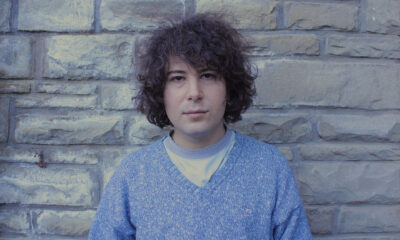
 Indie6 days ago
Indie6 days agoMichele Ducci Premieres Bouncy New Single “You Lay the Path by Walking on it”
-

 Alternative/Rock6 days ago
Alternative/Rock6 days agoWilliam Edward Thompson Premieres His Stripped-Down “Sleep Test” Music Video
-

 Country1 week ago
Country1 week agoJayce Turley Reflects on “Misery” with the Premiere of His New Single
-
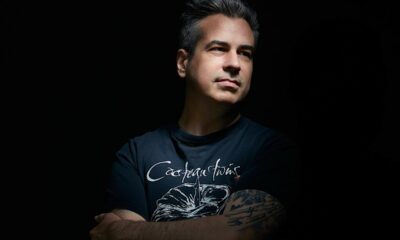
 Dance/Electronic2 weeks ago
Dance/Electronic2 weeks agoPerfect Female Type Premieres Synthwave Single “Science of Love”




